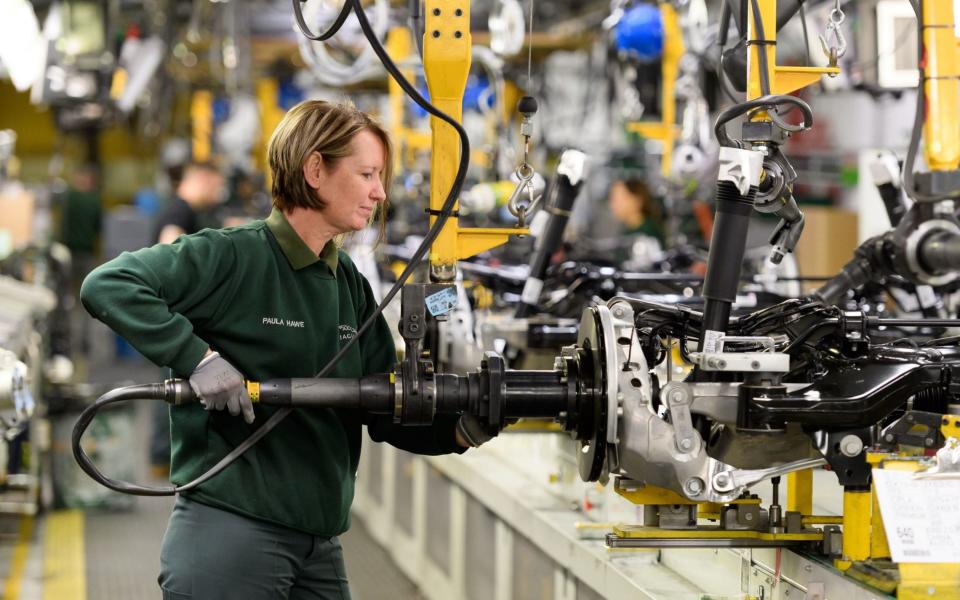UK car production slumps to 66-year low as third now electric

One in three cars made in Britain are now electric, new figures have revealed, amid warnings that subsidies in the EU and US threaten to derail the growing industry.
British factories made a record 234,066 battery electric and hybrid electric vehicles in 2022, according to the figures from the Society of Motor Manufacturers and Traders. Production was up 4.5pc on a year earlier to represent 30.2pc of all car production.
The milestone came as overall production slumped to a 66-year low as the industry was hamstrung by parts shortages and factory closures.
Mike Hawes, SMMT Chief Executive, said: “To a certain extent, the only way is up from here. But we want to make sure that it is sustained growth because we still believe that this can be an attractive place to invest.”
Mr Hawes warned that more action was needed to ensure the success of Britain's electric car industry in the face of large subsidies abroad.
The US Inflation Reduction Act, which offers tax incentives to green companies and electric car customers, threatens to “suck up” investment. The European Union has also promised incentives to attract electric vehicle makers and other green industries.
“You can't just accept this laissez faire approach to investment, it’s not a level playing field,” Mr Hawes said.
The warning came as SMMT figures showed the number of cars rolling off UK production lines fell to the lowest level since 1956. 775,014 vehicles were completed in Britain last year, down 9.8pc on 2021 and 40pc below pre-pandemic production levels.
The industry was hampered by parts shortages, including a dearth of computer chips as production slowed by lockdowns in China. Access to cable harnesses from Ukraine was also disrupted by the outbreak of war there.
The closure of Honda’s plant in Swindon in 2021 dealt a further blow to production.
The slump in output was ameliorated by a 16.5pc jump from Nissan production, which helped make the Qashqai the most popular car in the UK in 2022, according to SMMT.
Mr Hawes said: “These figures reflect just how tough 2022 was for UK car manufacturing, though we still made more electric vehicles than ever before.”
This year, the industry expects to make 842,000 cars, cracking 1 million vehicles in 2025, but there are big challenges on the way, said Mr Hawes.
Carmakers are losing workers to other industries as they are being lured away by the promise of bonuses and other perks to businesses such as Amazon in fast-growing sectors, the SMMT has been told.
To help the electric vehicle industry, the Government must also provide more clarity on regulation, the SMMT said.
The industry is still awaiting the results of the consultation the Government launched last April on the structure of the Zero Emissions Vehicle (ZEV) mandate.
The ZEV mandate will force car makers to sell a certain proportion of electric vehicles in the run-up to the total ban on pure combustion engines in 2030.
Car makers would like to know what these rules are in order to plan new vehicles, factories and investments, said Mr Hawes.
To get back to pre-pandemic levels of growth and make 2m cars a year will require other manufacturers to set up factories in the UK, he said, probably from growing markets like China, which may see the UK as an attractive prospect as one of Europe’s largest car markets.

 Yahoo Finance
Yahoo Finance 